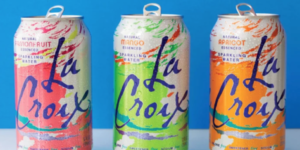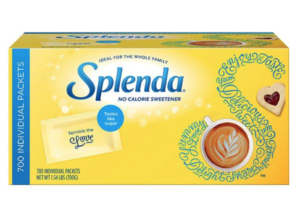Artificial Sweeteners
Sweet Deception
A few weeks ago my daughter and I grabbed a “Seltzer water”. The front of the bottle stated only “Orange 0 calorie seltzer”. I figured it was just the typical silly marketing since Seltzer has no calories. As soon as we took one sip we could taste that it had something in it: Splenda (aka “Sucralose” in the ingredients)! Infuriated that it was not on the front of the label, I went back to the store and returned the product. The clerk was surprised and said, “I have been drinking that for weeks and had no idea it had anything but orange flavoring in it.”
This kind of statement didn’t surprise me. Many of my clients are ingesting loads of hidden sugars and sweeteners diminishing their ability to recognize when their foods or beverages are sweetened.
Artificial Sweeteners, Not As Sweet As You Think
Artificial sweeteners are in thousands of products from yogurt, ice cream, protein powders, beverages, frozen meals, oatmeal, etc. The most common artificial sweeteners are NutraSweet – now called “AminoSweet”, Phenylalanine (50% of which is made from Aspartame). Sucralose (also known as Splenda), Equal (also Aspartame with added dextrose and maltodextrin) and saccharin which is rarely used anymore.
Right to the point: Sweeteners cause more cravings. They have the potential to decrease optimal liver function and (especially Splenda) have been found to destroy the good bacteria in the gut. This causes more IBS, auto-immune and food allergies.
The FDA has received numerous complaints of side effects. This includes headaches, stomach upset, dizziness, mood alteration, and seizures but maintains they are “Generally Recognized As Safe” (GRAS) for human consumption.
Turns Out Splenda Is Not So Splendid
In 2006, “The New York Times” reported the results of a seven-year study conducted on rats by Dr. Morando Soffritti in Bologna, Italy, which indicated an elevated risk of lymphomas and leukemias by drinking diet sodas.
The side effects associated with phenylalanine include nausea, heartburn, headaches, anxiety, hyperactivity, and a jittery feeling. It is recommended that people do not take phenylalanine, or aspartame-containing products, if they have PKU, are pregnant or breastfeeding, take antipsychotic, antidepressant or antispasmodic medication.
Splenda has many of the same side effects but also appears to increase the risk of metabolic syndrome. For example diabetes, obesity, high cholesterol, high blood pressure. This website is dedicated to Splenda’s risks. Dr. Mercola wrote a very informative article on Splenda in 2011.
Two great resources for more information on artificial sweeteners are: 1) The Movie “Sweet Misery; A poisoned world” and the book “Sweet Deception” by Dr. Joseph Mercola.
So what is a person to do? Read ingredients. Use “stevia” or “xylitol” for transitional sweeteners. Empower yourself to look for these products and shop – cook – eat 4 Better Health by decreasing (or completely avoiding) these products.

 “Finding 4 Better Health was a blessing after many years of traditional medicinal doctors /Endocrinologists being unable to get me to feeling optimal. Dr Zub listened to me, truly heard me & devised a proactive plan for me to have a better life. My body is still healing, but I am no longer barely functioning to get through my daily life. I can exercise again without being completely depleted of energy. I have been able to successfully lose 20 pounds. I feel I can always contact Dr. Zub with any questions or concerns I may have. We continue to work together to find the right course of action for my health. I can’t say enough great things about their practice.”
“Finding 4 Better Health was a blessing after many years of traditional medicinal doctors /Endocrinologists being unable to get me to feeling optimal. Dr Zub listened to me, truly heard me & devised a proactive plan for me to have a better life. My body is still healing, but I am no longer barely functioning to get through my daily life. I can exercise again without being completely depleted of energy. I have been able to successfully lose 20 pounds. I feel I can always contact Dr. Zub with any questions or concerns I may have. We continue to work together to find the right course of action for my health. I can’t say enough great things about their practice.”

